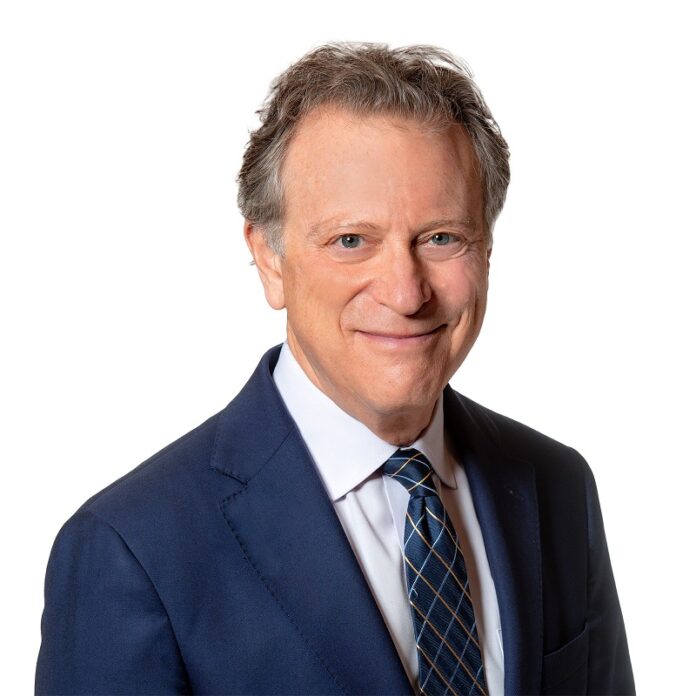TURNING plastics from old car batteries into new ones, developing artificial intelligence to sort plastics for recycling and supporting local micro-recycling facilities are among nine projects being funded under the CleanBC Plastics Action Fund.
Recognizing the rapid growth of the use of plastics in manufacturing and the need to address plastic waste, $5 million encourages innovative technologies to turn used plastics into new products, support the circular economy for plastics and increase local processing capacity for recycling and create new jobs. The funded projects will replace or recycle over 20,000 tonnes of plastic per year.
“These projects show what British Columbians can accomplish when their great ideas and enthusiasm are supported by a government that’s serious about tackling plastic waste and reducing pollution of our land and ocean,” said George Heyman, Minister of Environment and Climate Change Strategy, on Wednesday. “Today, we take another key step towards building a more conscientious and comprehensive B.C. recycling program that’s focused on transforming used plastic into an economic asset.”
The recipients provide at least one-third of eligible costs towards the total cost of the projects, which must be completed by December 31. Projects were chosen based on their ability to increase processing capacity, increase the use of post-consumer recycled (PCR) plastic in manufacturing or support PCR plastic product research, design and testing.
“The circular economy in B.C. shows great promise for economic recovery, reducing emissions and recycling plastics into new products,” said Jill Doucette, Executive Director, Synergy Foundation, a Victoria-based non-profit that supports the administration of the fund. “In B.C., we have incredible industry leaders in plastic recycling, and this support will help take their efforts to the next level.”
The funding is an important part of the CleanBC Plastics Action Plan and its goal to address plastic waste. The initiative is also part of B.C.’s $10-billion COVID-19 response, which includes StrongerBC: BC’s Economic Recovery Plan to protect people’s health and livelihoods, while supporting businesses and communities.
“The response to the CleanBC Plastics Action Plan shows the vision and scope of British Columbia companies that are using technology in new ways to help make life better for all of us,” said Brenda Bailey, Parliamentary Secretary for Innovation and Technology. “From using artificial intelligence to sort used plastic more efficiently, to 3D printing new products out of old plastic – these companies are creating jobs and improving our environment.”
Quick Facts
* Global plastics recycling generates an estimated $75 billion a year through major companies committed to using more recycled content to reduce plastics.
* B.C. is a leader in creating extended producer responsibility (EPR) recycling programs. It has more programs than any other jurisdiction in North America.
* 315,000 tonnes of plastics, such as those in electronics, beverage containers and other packaging, are already captured annually in B.C.’s EPR programs.
* The fund supports what government heard during the 2019 CleanBC Plastics Action Plan engagement, including reducing plastic waste by increasing the use of recycled plastics in manufacturing. More than 35,000 British Columbians responded to the engagement, with 94% of respondents reporting they were concerned about plastic waste and 86% stating it was important to seek out products with more recycled content.
BACKGROUNDER
CleanBC Plastics Action Fund recipients
The CleanBC Plastics Action Fund supports B.C. businesses to create new value from used plastics.
This is done by including more recycled material in the manufacturing of products, keeping plastic out of landfills and the environment.
Applications for funding were screened on selection criteria, including:
* impact of the project on jobs and economic recovery;
* alignment with the fund objectives, including the use of more postconsumer recycled (PCR) plastics in manufacturing; and
* innovation and feasibility to complete the project by December 31, 2021.
The fund also provides benefits for women, youth, and Indigenous people by creating employment opportunities and supporting community-based initiatives.
Total funding of $5 million (including $345,000 for administration costs) will support nine projects throughout British Columbia and create almost 100 jobs. The dollar values below represent the provincial funding portion only.
Flipside Plastics – Victoria
Flipside is an innovative startup focused on micro recycling and manufacturing to better manage waste locally. Funding will support the company’s pilot project to gather and process plastic waste and upcycle it into new products for sale on Vancouver Island.
$50,000
K-C Recycling Ltd. – Trail
Funding will support plant upgrades to process plastic waste casings associated with lead-acid car batteries. The higher value pelletized PCR plastic will be used in B.C. to manufacture new car batteries.
$852,997
Kootenay Outdoor and Environmental Learning Society – Rossland
Funding will support processing hard-to-recycle plastics, such as fridge inserts, to produce goods for the local ski community. This is a non-profit society that also plans an education and demonstration centre to showcase circular solutions for small communities.
$14,000
Merlin Plastics – Delta
Funding will support upgrading equipment to increase the supply of PCR plastic to be used as feedstock in new food-grade packaging by increasing the capacity to process recycled polyethylene and improving the quality of polypropylene.
$1,560,000
Metaspectral – Vancouver
Funding will be used to develop computer vision, artificial intelligence and robotics to sort consumer waste, increase efficiency in processing materials and improve the quality of PCR plastic.
$307,533
Plascon Plastics Corporation – Delta
Funding will allow Plascon to manufacture the first child-safe cannabis container made from 100% PCR plastic, by combining its experience making PCR injection-moulded products with its manufacturing of child-safe products out of virgin materials.
$600,000
Reclaim Plastics – Burnaby
The company specializes in recycling and remanufacturing plastic bumper covers for automobiles. Funding will scale up operations and allow it to recycle other automotive plastics that have not been abstracted to date.
$667,000
Recycling Alternative – Vancouver
Recycling Alternatives has a highly localized urban solution for processing PCR plastic in Vancouver and reducing greenhouse gas emissions associated with transporting waste. This funding will increase its capacity to both sort and process plastic, enabling the creation of more high-quality PCR plastic to be used in local manufacturing. Recycling Alternative has strong hiring for diversity and is a partner in the Indigenous Recycling Employment Entry Program.
$563,470
The Rogerie – Kelowna
Funding will support taking high-density polyethylene plastic jugs from zero-waste stores and recycling them into moulded products that the zero-waste stores will then sell. This will provide an opportunity to address waste locally, with the potential to scale up to multiple micro-recycling facilities in B.C. and Canada.
$40,000
Total funding: $4,655,000
Total jobs: 88.5











